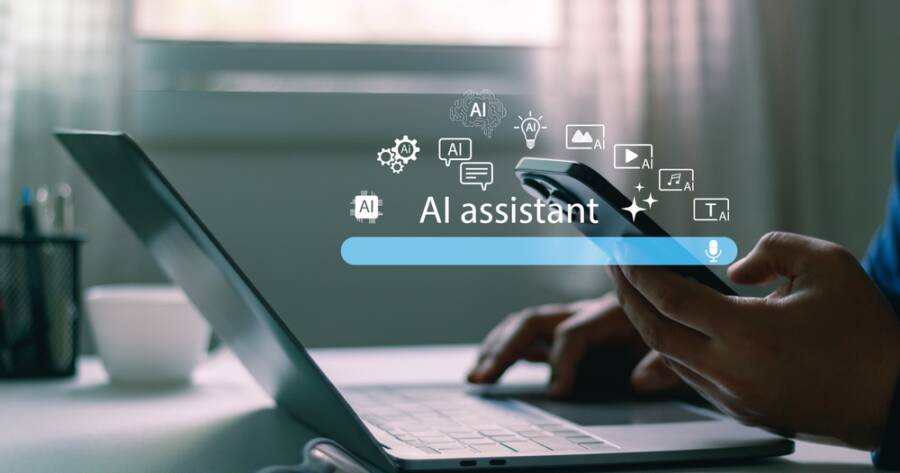Technology is reshaping the workplace faster than ever before. Automation, artificial intelligence, and remote tools have changed not only how people work—but what work means. Entire industries are evolving, and new roles are emerging in fields that didn’t exist a decade ago. While change can feel daunting, it also opens doors to innovation and flexibility. The key to thriving in the modern workforce is adaptability—staying curious, skilled, and ready for what comes next.
Automation and the Evolution of Jobs
Automation has moved beyond factories and into nearly every industry. From data entry to logistics and customer service, repetitive tasks are increasingly handled by software and machines. But instead of eliminating opportunity, automation is redefining it. When technology handles routine work, humans can focus on strategy, creativity, and relationship-building—the skills that machines can’t replicate.
New industries are also emerging as technology evolves. Fields like robotics maintenance, AI ethics, and data analytics are growing rapidly. The workforce of the future will blend technical expertise with human insight, requiring workers to continually learn and adapt. Change isn’t removing work—it’s reshaping it into something more dynamic and diverse.
Remote Work and Global Collaboration
Technology has untethered work from geography. Cloud platforms, communication tools, and project management software allow teams to collaborate seamlessly across continents. The rise of remote and hybrid models has transformed what “going to work” looks like—offices are now virtual spaces filled with digital connection.
This shift offers freedom and inclusivity. People can work where they live best rather than relocate for opportunity. Businesses gain access to a global talent pool, increasing diversity and innovation. The challenge lies in maintaining culture, communication, and balance. The future of work will depend on building connection through screens without losing the human touch that drives teamwork and trust.
The Growing Role of Artificial Intelligence
Artificial intelligence has become one of the biggest drivers of workplace transformation. From automating administrative tasks to analyzing data and predicting trends, AI helps businesses make smarter decisions faster. It’s changing how professionals across every field operate—marketing, healthcare, finance, and education included.
Rather than replacing humans, AI is becoming a collaborative tool. The most successful professionals will be those who know how to work with technology, not against it. Understanding how to use AI to enhance creativity, problem-solving, and efficiency will be a core skill in the next decade. Human intuition, paired with machine intelligence, will set the standard for future innovation.
Lifelong Learning and Adaptability
In a rapidly changing world, learning doesn’t stop at graduation. Technology is shortening skill lifecycles, meaning what’s relevant today may be outdated in just a few years. Continuous learning—through online courses, microcredentials, podcasts, or mentorship—is essential for staying competitive. The ability to adapt quickly has become just as valuable as expertise itself. Those who treat learning as an ongoing habit, not a one-time event, stay ahead of industry shifts.
Employers increasingly value agility, curiosity, and problem-solving over rigid specialization. Professionals who actively expand their skills demonstrate resilience and foresight. Learning new tools, experimenting with AI-driven software, or simply understanding emerging trends keeps you relevant in a world that never stops moving. The future favors those who evolve alongside technology rather than resist it—lifelong learners who approach every change as a chance to grow, improve, and innovate.
Redefining Leadership and Human Connection
As technology transforms work, leadership is evolving just as rapidly. Modern leaders must navigate remote teams, global collaboration, and digital tools while keeping people engaged, motivated, and connected. Empathy, transparency, and communication have become just as essential as strategy and results. Great leaders know that while systems and software drive efficiency, it’s people who drive innovation and loyalty.
In this new era, leadership means cultivating trust across screens. Celebrating wins publicly, encouraging open dialogue, and prioritizing well-being remind employees they’re part of something meaningful—even from afar. Emotional intelligence is no longer a “soft skill”; it’s a core business advantage. The future of leadership lies in guiding with both heart and clarity—using technology to empower, not replace, the human spirit that keeps every workplace alive.
Thriving in the New World of Work
The intersection of technology and humanity defines the future of work. Machines will continue to evolve, but human creativity, emotion, and judgment remain irreplaceable. The careers of tomorrow will favor those who balance both—embracing innovation while holding onto empathy and adaptability.
Change can feel uncertain, but it’s also an invitation to grow. By staying open, learning continuously, and leading with purpose, anyone can thrive in the shifting landscape of modern work. The future isn’t something to fear—it’s something to shape.

